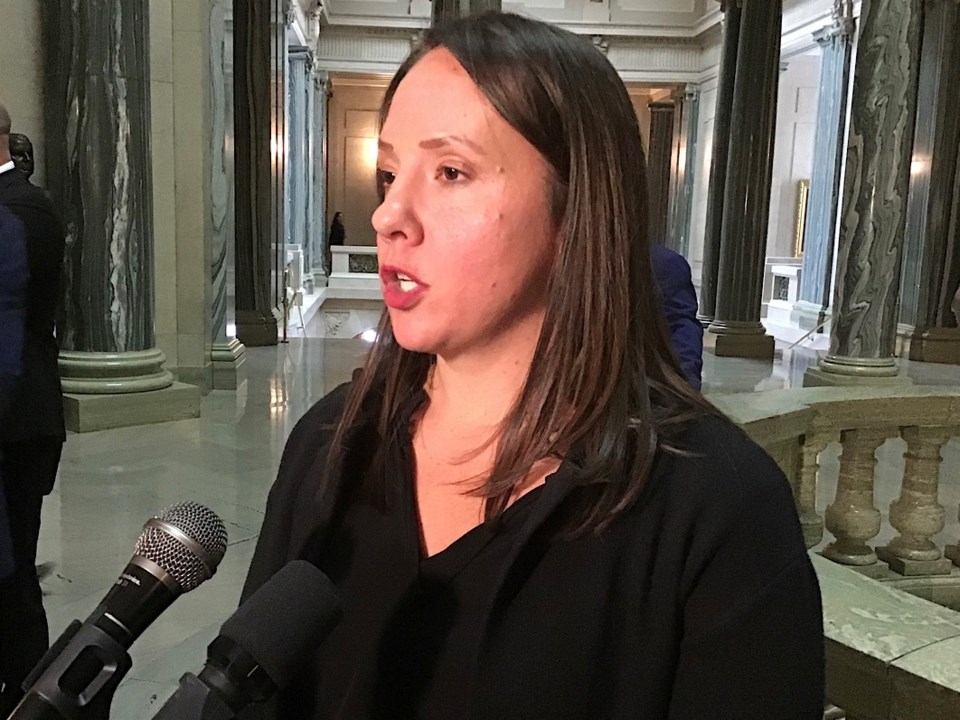REGINA - The President of the Saskatchewan Teachers’ Federation is calling job action “virtually inevitable” following the conclusion of conciliation meetings between the teachers union and the government.
STF President Samantha Becotte said in a news release the province has “failed to move off its original position since negotiations began in May.” She said the province will not negotiate on issues crucial to teachers, students and parents including on class size, classroom complexity, support for students and violence in the classroom.
Becotte now says the province has set a course that makes job action by teachers “virtually inevitable.”
The union is now waiting for the Conciliation Board’s report, and STF states the Federation will be finalizing the strategy for implementing sanctions.Earlier this fall, STF members had voted 95 per cent in favor of sanctions. Should those be implemented, those could range from not participating in extracurriculars to a full-blown withdrawal of services.
The statement in full from Becotte and STF is as follows:
“Talks aimed at reaching a new provincewide collective agreement for Saskatchewan teachers have now concluded.
"Regrettably, the Government of Saskatchewan has failed to move off its original position since negotiations began in May and will not negotiate on issues that are crucial to teachers, students and parents.
"These issues include class size, classroom complexity, support for students and violence in the classroom.
"The Saskatchewan Teachers’ Federation would like to express their thanks to the Conciliation Board and the members of the Government-Trustee Bargaining Committee. The government’s intransigence has put them in an impossible position.
"When teachers are not allowed to freely discuss the issues facing the education sector, that means collective bargaining is not working.
"The Government of Saskatchewan has now set a course that makes job action by teachers – and the disruption that comes with it – virtually inevitable.
"As we await the Conciliation Board’s report, the Federation will be finalizing the strategy for implementing sanctions.
"We ask that everyone in our province contact their elected representatives, as well as Minister of Education Jeremy Cockrill and Premier Scott Moe, and urge their government to begin bargaining in good faith with respect to class size, classroom complexity, support for students and violence in the classroom.”
In a statement, Opposition Education Critic Matt Love expressed his own dismay over what they describe as an impasse in education talks.
“I’m deeply disappointed that the Moe government did not offer a fair deal,” said Love in a news release. “This government needs to start making our kids a priority. Teachers’ working conditions are our kids’ learning conditions.”
The Opposition contrasted this situation to that in Ontario and Newfoundland and Labrador where deals were secured. They also blasted the government over education funding levels and learning conditions of students.
“This government shouldn’t be focusing its energy on misleading billboards that vilify teachers,” Love said. “This is a crisis of Moe’s making. Any potential job action falls solely at the feet of Scott Moe and his education minister.”






